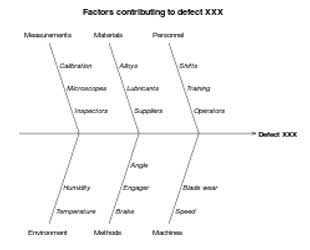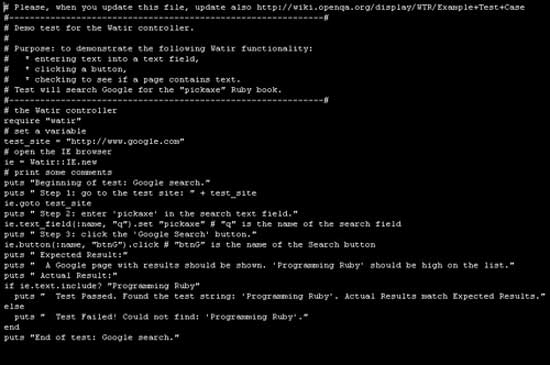Software Testing Articles, Blog Posts, Books, Podcasts and Quotes
Pex is a Visual Studio 2010 Power Tools that help Unit Testing .NET applications. Pex automatically generates test suites with high code coverage. Right from the Visual Studio code editor, Pex finds interesting input-output values of your methods, which you can save as a small test suite with high code coverage. Microsoft Code Digger is a Visual Studio 2012 that analyzes possible execution paths through your .NET code. The result is a table where each row shows a unique behavior of your code. The table helps you understand the behavior of the code, and it may also uncover hidden bugs.
Root Cause Analysis (RCA) is an approach used in software testing to identify the root causes of defects or problems and address them instead of treating the symptoms. It’s a process that grew out of accident investigations to become a standard feature of hardware engineering. If something is broken, instead of just fixing it at the point of discovery, let’s investigate and try to fix the underlying cause at the point of origin. This principle is applicable for software development and software testing, so much so, that it could have been developed to deal with software defects.
Distributed software development teams and distributed software testing are here to stay. In this article, Lisa Crispin asks “How do we get quality software in these situations?” and proposes some hints on how to get good results when you perform software testing with distributed teams.
Automating tests is an investment that is valuable as long as the investment is not too great. As such investing in automated testing tools can be great or bad depending on if your company really needs to automate. We want to get to the payback more quickly. The true investment is not only the cost of creating and maintaining automated tests. Watir is a family of libraries for testing web applications. Watir reduces the cost of creating automated tests that are maintainable. If we spend too much time fixing and debugging, we will never get the new features created, or we will abandon the automated tests temporarily.
When you need to perform unit testing in an independent way, you use mock objects. Mock objects are simulated objects that mimic the behavior of real objects in controlled ways. In this excerpt of their book “Pragmatic Unit Testing in C# with NUnit”, Andy Hunt, Dave Thomas and Matt Hargett explain how to avoid coupling when you build your C# unit tests.
PHPUnit is an open source unit testing software framework for software written in the PHP programming language. Created by Sebastian Bergmann, PHPUnit is one of the xUnit family of frameworks that originated with Kent Beck’s SUnit. This article will explore PHPUnit specifically as a way to introduce the basics of automated unit testing. You’ll need a basic grasp of the PHP programming language to proceed!
Exploratory testing is an approach to software testing that is defined as doing in the same activity application learning, test cases and test design and execution. In this article, Martin Jansson and Greger Nolmark propose to perform exploratory testing using a storytelling game format. This is a game where two or more persons collaborate on telling a spontaneous story.





